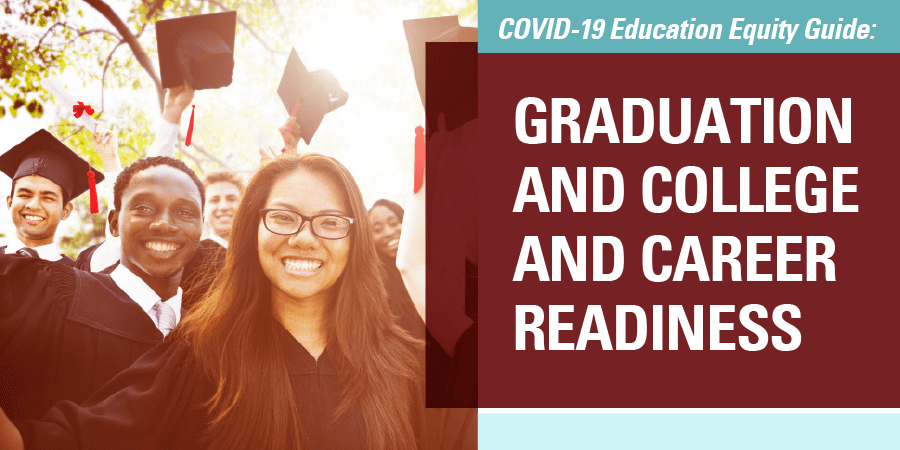COVID-19 Education Equity Guide: Graduation and College and Career Readiness
Curriculum and instructional materials that are aligned to high standards, appropriately challenging for students’ grade level, and culturally responsive…

Curriculum and instructional materials that are aligned to high standards, appropriately challenging for students’ grade level, and culturally responsive are critical to students’ learning and academic trajectory. When students face content and skills gaps – which happens all too often and will only be exacerbated by school closures – schools often respond by denying them access to grade-level content that is engaging and challenging, which leaves them even further behind their peers. Even when students of color, students from low-income backgrounds, and students with disabilities demonstrate readiness, they are often denied access to more rigorous materials and courses, despite the fact that when advanced opportunities are extended to students of color, and when teachers receive the training and resources they need to provide essential supports, these students thrive alongside their peers. The health crisis poses a number of unique challenges, especially for high school students, who will need support to meet graduation requirements, prepare for postsecondary opportunities, and navigate the transition after graduation.
Schools should hold all students to high standards, even during a pandemic. The beginning of the school year provides an opportunity for advocates to prompt state leaders to reexamine how they are supporting districts and schools in ensuring all students have access to a culturally relevant, rigorous, and engaging curriculum. This includes urging state leaders to provide and require districts to administer high-quality diagnostic assessments so that teachers and school leaders can provide all students with the appropriate instructional supports and resources and identify students for advanced coursework opportunities, especially in the absence of end-of-year assessment data from spring 2020.
EQUITY PRINCIPLE: Every student – especially students of color, students from low-income backgrounds, English learners, students with disabilities, and students experiencing homelessness – is held to high academic expectations. They have access to challenging, engaging, grade-level content; get the support they need to graduate high school; and are prepared to enter a two- or four-year college and/or pursue a career that pays a living wage.
EQUITY ACTIONS:
Florida Expands AP Access and Success for Latino Students
Florida has taken a number of steps to expand access to advanced coursework for underrepresented students. Nearly two decades ago, the state began providing free PSAT tests to all high school sophomores, so educators could use the test scores to identify high-achieving Black and Latino students who were being overlooked for advanced coursework. Florida also provides materials and teacher training to expand access to AP programs in schools serving historically underserved student groups. As a result of these efforts, the state has significantly increased access to and success in AP coursework for Latino students. For example, in 2000, only 5,800 passed an AP exam with a score of 3 or higher; in 2015, the number of Latino students passing at least one AP exam was 42,000.